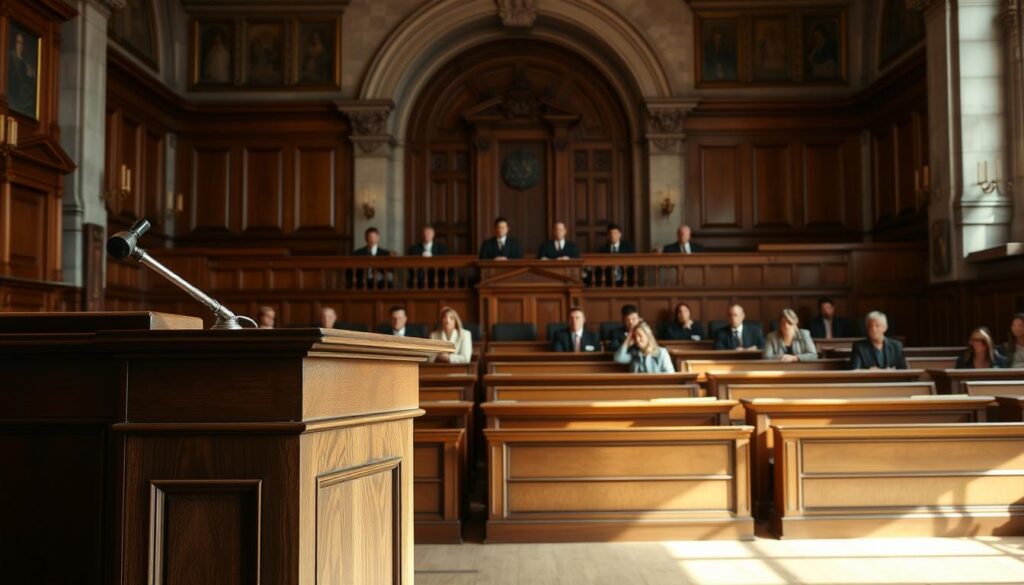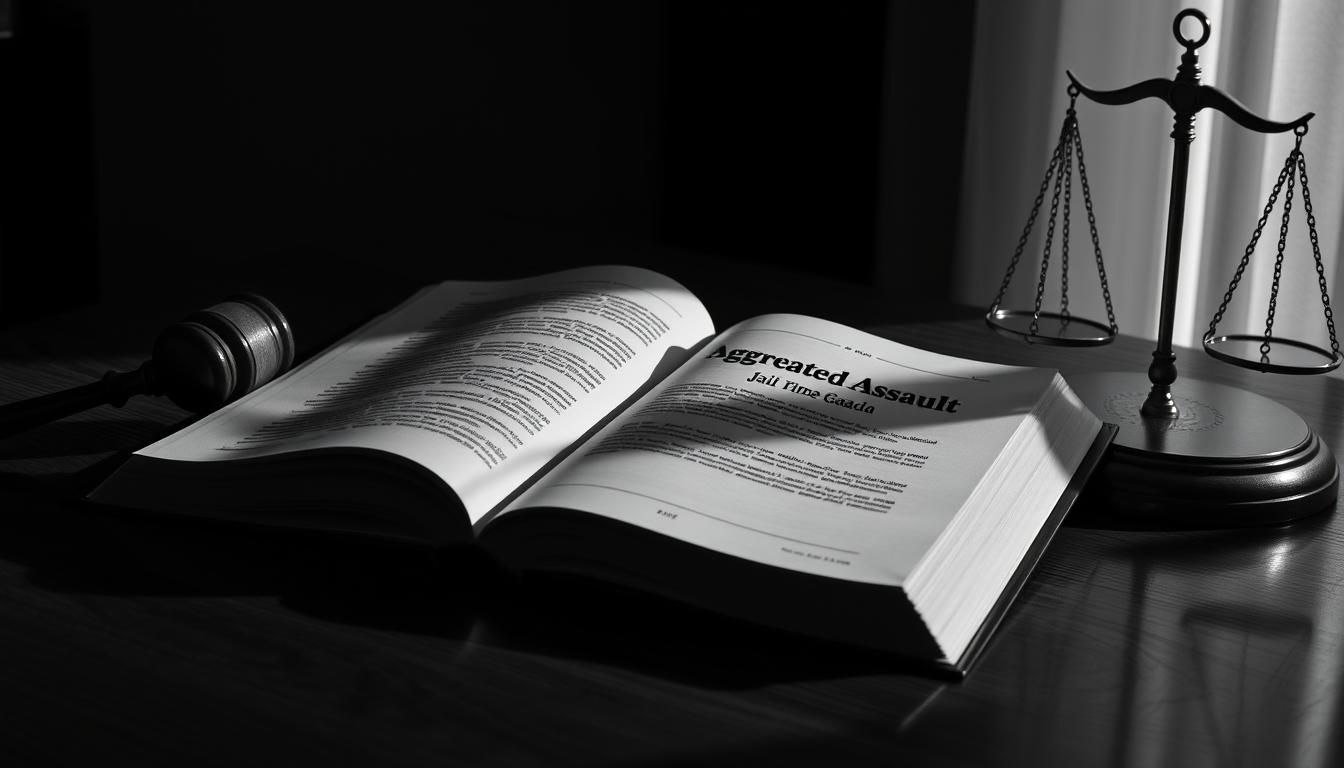Table of Contents
Did you know that in Canada, over 700,000 individuals are impacted by assault charges annually? This staggering number highlights the serious nature of such offenses under Canadian law. Understanding the legal implications of aggravated assault is crucial for anyone facing charges or seeking to navigate the complexities of the criminal justice system.
This guide, backed by the expertise of Sohi Law Group, provides a comprehensive overview of aggravated assault jail time in Canada. We’ll explore the legal definitions, potential sentences, and key distinctions between assault and aggravated assault. Whether you’re seeking legal advice or simply looking to understand the system, this resource offers clear insights to help you make informed decisions.
Under the Canadian Criminal Code, aggravated assault is classified as a serious offense, carrying sentences of up to 14 years in prison. The severity of charges depends on factors such as the extent of injuries, the use of weapons, and the accused’s criminal history. Consulting with a lawyer experienced in criminal law can significantly impact the outcome of your case.
If you or someone you know is facing charges, consider reaching out to Sohi Law Group at 833-877-9797 for a confidential consultation. Their team of legal experts is dedicated to providing guidance and support tailored to your unique situation.
Understanding Aggravated Assault and Canadian Law
Aggravated assault is a serious offence under the Canadian Criminal Code, with significant legal implications. Understanding its definition and distinctions from other forms of assault is essential for navigating the legal landscape.
Definition and Legal Elements
Under section 268 of the Criminal Code, aggravated assault involves actions that wound, maim, disfigure, or endanger the life of another person. Key legal elements include:
- Intent to apply force
- Resulting serious bodily harm or injury
Bodily harm refers to injuries beyond minor ones, such as bruises or broken bones.
Distinguishing Types of Assault
| Type of Assault | Legal Definition | Implications |
|---|---|---|
| Common Assault | Minor force or threat without injury | Less severe penalties |
| Assault with Weapon/Bodily Harm | Use of weapon or causing injury | Harsher penalties |
| Aggravated Assault | Severe harm or endangerment | Up to 14 years imprisonment |
Each type carries different legal consequences, with aggravated assault being the most severe.
Exploring Aggravated Assault Jail Time Canada
Understanding the sentencing process for aggravated assault in Canada is crucial for those facing charges. The legal system considers various factors to determine the appropriate sentence, ensuring justice is served fairly.
Factors Influencing Sentencing
The severity of the sentence often depends on several key factors. These include the extent of the victim’s injuries, whether a weapon was used, and the defendant’s prior criminal record. Each of these elements can significantly impact the final judgment.
Maximum Penalties and Court Procedures
Under Canadian law, the maximum penalty for aggravated assault is up to 14 years in prison. However, in cases involving aggravating circumstances, such as attacks on domestic partners or repeat offenses, the sentence can extend to life imprisonment. The court follows specific procedures to evaluate these circumstances and determine the appropriate penalty.
| Factor | Impact on Sentence |
|---|---|
| Severity of Injury | More severe injuries lead to harsher sentences. |
| Use of Weapon | Increases the likelihood of a longer jail term. |
| Previous Convictions | Repeat offenders face more severe penalties. |
Consulting a knowledgeable criminal lawyer can provide valuable insights and support in navigating these complex legal proceedings.

Defending Against Aggravated Assault Charges
Defending against an aggravated assault charge requires a strategic and informed approach. A skilled defence lawyer can help navigate the complexities of the legal system and ensure your rights are protected.
Available Defences and Legal Strategies
Several robust legal defences can be raised against aggravated assault charges. These include self-defence, defence of another, and involuntary reflex actions. Each defence must be supported by credible evidence to demonstrate its validity.
Challenges in Evidence and Intent
Proving intent and actual harm is critical in these cases. Challenges arise when substantiating claims of self-defence, as the burden of proof lies with the defence. Legal strategies may involve challenging the identification of the accused or the sequence of events.
A skilled legal team can help address these challenges. For more information on defence options, visit Slafer Ek Law or explore Sohi Law Group for trusted legal strategies.
If you’re facing charges, contact a qualified lawyer to discuss your case and ensure your rights are safeguarded. Expert legal guidance is essential to navigate the complexities of your defence effectively.

Case Studies and Legal Precedents
Real-life legal cases provide valuable insights into how courts interpret and apply the law in aggravated assault cases. These examples highlight the importance of legal precedents in shaping the outcomes of such charges.
Key Canadian Legal Cases
Several notable cases demonstrate the judicial approach to aggravated assault. For instance, in R v Do (2018 BCCA 229), the court sentenced the defendant to 18 months for assault causing bodily harm and related charges. This case underscores the significance of evidence in securing convictions.
| Case | Details | Sentence |
|---|---|---|
| R v Godin | Involved severe bodily harm | 14 years imprisonment |
| R v Do | Assault with a weapon and threats | 18 months imprisonment |
| R v Bryce | Assault with brass knuckles | 18 months plus probation |
Lessons Learned from Past Convictions
These cases reveal that the severity of injuries and use of weapons are critical factors influencing sentences. For example, in R v Cardinal (2012 ABCA 102), the defendant received 30 months for assault with a weapon and other charges, emphasizing the impact of aggravating circumstances.
For those facing similar charges, understanding these legal precedents can provide guidance. Consulting a lawyer experienced in criminal law, such as those at Sohi Law Group, can offer tailored strategies and support.

Expert Guidance from Sohi Law Group
Sohi Law Group stands as a trusted partner for those navigating the complexities of aggravated assault charges in Canada. With a proven track record and a client-centered approach, their team of skilled lawyers offers tailored legal strategies to ensure the best possible outcomes.
Our Proven Legal Process
Their systematic approach begins with a thorough consultation to understand each case’s unique details. Sohi Law Group then conducts a meticulous case evaluation, identifying key evidence and potential defenses. This process is designed to address each client’s specific needs, ensuring a personalized strategy that maximizes results.
| Service | Details |
|---|---|
| Initial Consultation | Comprehensive review of case specifics |
| Case Evaluation | Thorough analysis of evidence and defenses |
| Legal Strategy | Tailored approach for optimal outcomes |
Contact Us: 833-877-9797 for a Free Consultation
Don’t navigate the legal system alone. Sohi Law Group’s accessible consultation process ensures you receive expert guidance when you need it most. Their success stories, including reduced charges and dismissals, highlight their commitment to excellence. Contact them today to discuss your case and explore your legal options.

For more information on how Sohi Law Group can assist you, visit their website. Let their expertise guide you through the legal landscape with confidence and clarity.
Conclusion
Understanding the legal implications of serious offenses under the Canadian Criminal Code is essential for anyone facing charges or seeking to navigate the criminal justice system. This guide has explored the definitions, potential sentences, and key distinctions between various forms of assault, emphasizing the importance of professional legal representation.
The severity of charges depends on factors such as the extent of injuries, the use of weapons, and the accused’s criminal history. Consulting with a lawyer experienced in criminal law can significantly impact the outcome of your case. If you or someone you know is facing charges, consider reaching out to Sohi Law Group at 833-877-9797 for a confidential consultation. Their team of legal experts is dedicated to providing guidance and support tailored to your unique situation.
For more information on how Sohi Law Group can assist you, visit their website. Let their expertise guide you through the legal landscape with confidence and clarity.



No comment